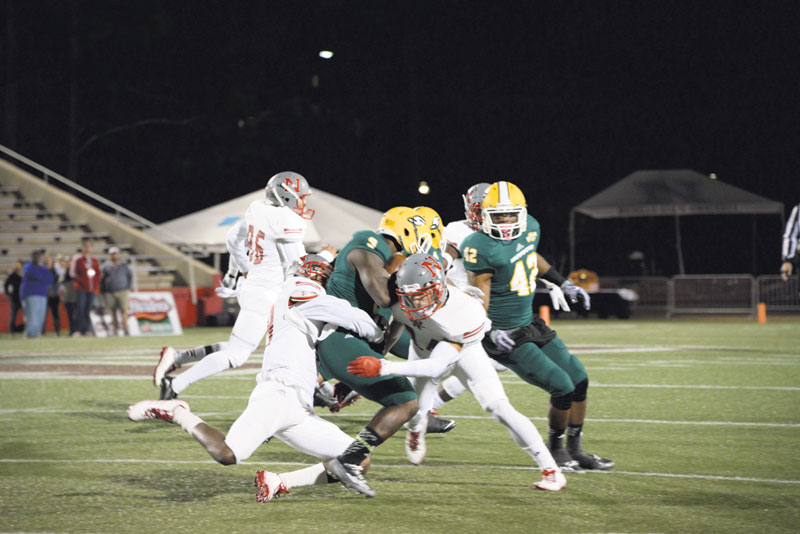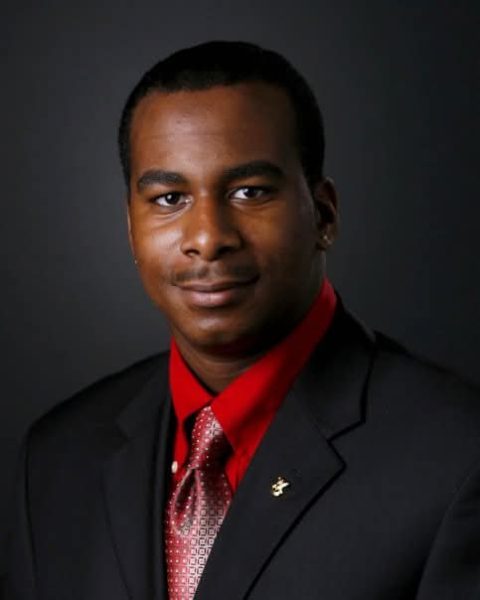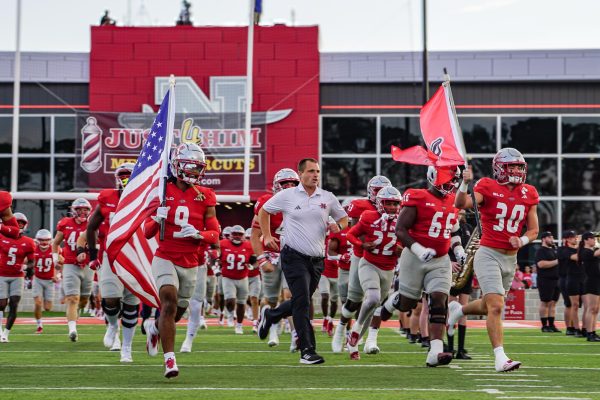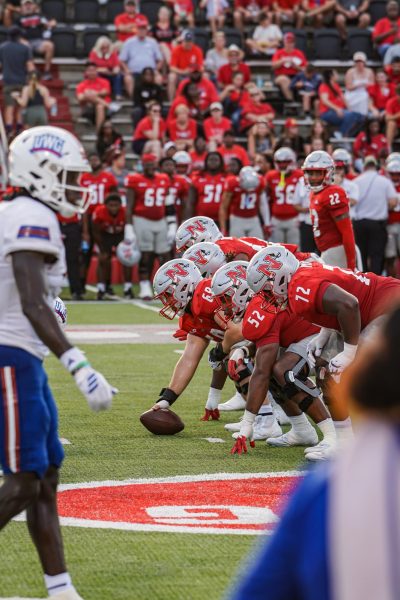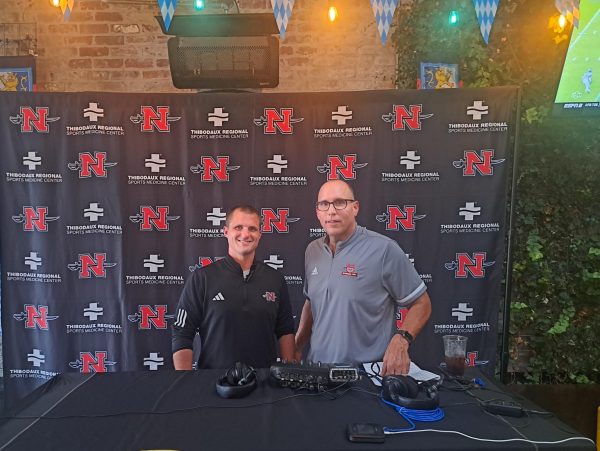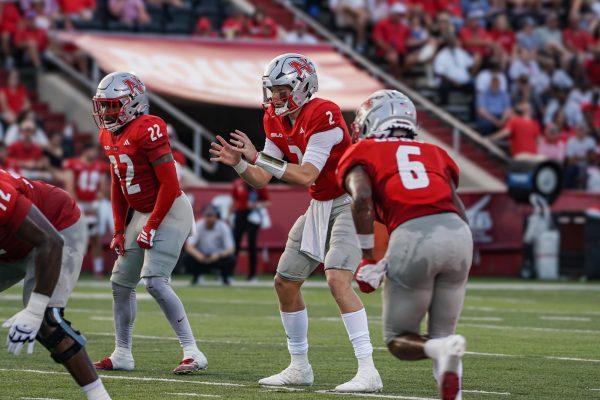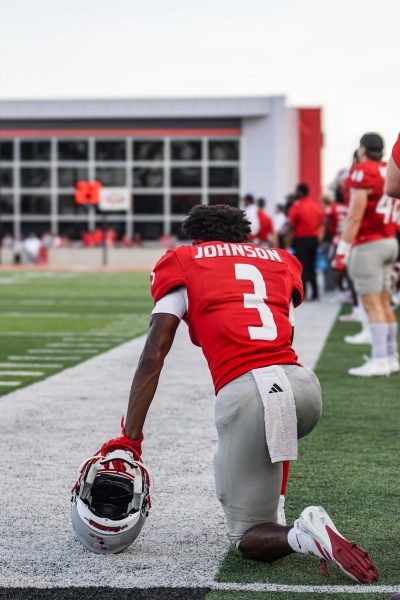Post-concussion symptoms pose serious threat to athletes
Photo by: Jeffery Miller
Two Nicholls State University football players tackle a Southeastern Louisiana University player during the Colonels’ meeting with the Lions last November. Football players are highly susceptible to head injuries during games.
According to the Sports Concussion Institute, an estimated 1.6 to 3.8 million concussions occur each year and are one of the most common injuries in sports.
Mayfield Armstrong, director of Orthopedic and Sports Medicine Services at Thibodaux Regional Medical Center, has 35 years of experience as an athletic trainer and consultant for high school, college and professional athletes. He was an athletic training certified concussion observer for the Atlanta Falcons.
“A sideline or bench decision on the court or the field is a weighted decision. There are protocols we have to go through and tests that we must use,” Armstrong said. “If you call it a concussion or not, you make the decision if that athlete will return or sit on the bench. If the patient wakes up with lingering symptoms, then it would be considered a concussion.”
Concussions can occur in any sport, but football is most common with a 75 percent chance of players receiving one. A professional football player will receive an estimated 900 to 1500 during a single season. In soccer, players have a 50 percent chance of getting a concussion and 78 percent of concussions occur during a game. According to a study from the University of North Carolina, out of 595 football players, 20.2 percent said they had been found to have depression after sustaining a head injury.
Kosta Karageorge, a former Ohio State University defensive linemen and college wrestler, was found dead in a dumpster near his apartment with what appeared to be a self-inflicted gunshot wound. Karageorge suffered multiple concussions and frequent spells of confusion from playing football. His mother told police that her son texted her saying that he was sorry if he was an embarrassment. She told reporters that he was seen by the OSU athletic trainers and was given the proper treatment, but the effects of the concussions had been long term.
“Referring to the Ohio State player and the tragic scenario of that, everyone needs to work together and try to keep that from happening. Psychological things can come from it and any other injury,” Armstrong said. “These people are healthy and they are successful in what they do, then they have, let’s say, a knee injury and they are not successful anymore. Injuries can create personality changes. They are real and need to be addressed.”
Lauren Vedros Jones is a neurological physical therapist at Thibodaux Regional Medical Center. She said the brain uses a lot of energy to heal itself and if it isn’t given time to heal properly, it replenishes itself with less energy.
“After impact we start shooting off potassium and sodium out of our brain, then our brain starts dumping,” Jones said. “This is why rest is very important and your brain will take all the energy it needs to heal itself. If you don’t allow it to heal appropriately, it will prolong you with problems.”
Karageorge is not the only football player to commit suicide after having multiple concussions. Former National Football League safety and two-time super bowl champion, Dave Duerson, took his own life after suffering the long-term effects of concussions. He donated his brain to Boston University researchers for evaluation of a multiple concussed mind.
“He knew his suffering was from all the head injuries, and he realized what kind of chaos his life was becoming and knew it was because of head injuries. I have a couple of patients that were college athletes and took several hits to the head,” Jones said. “They are having frequent headaches and trouble functioning and working.”
Although concussions are common for athletes, they are still either improperly diagnosed or not taken seriously.
“Ten years ago, if you sustained a head injury, they would ask you how many fingers am I holding up? You give the correct answer and you are back in the game. We really need to get past all of that. A hit to your head is a long lasting injury, and we really need to take this seriously.”


